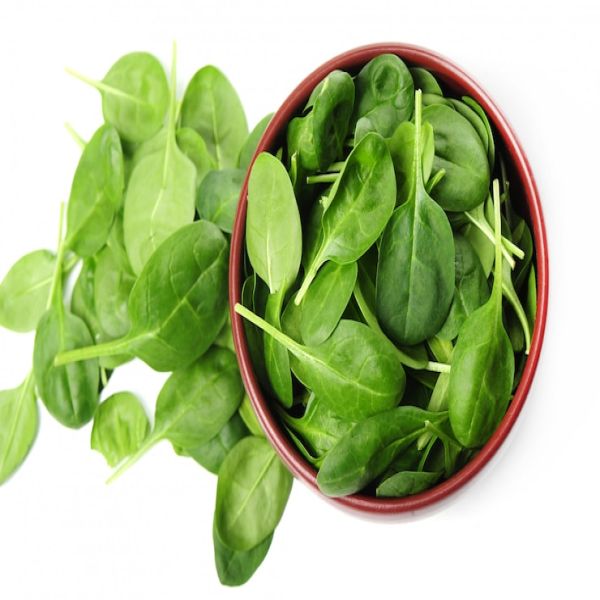VITAMIN K
Vitamin K is a fat soluble group of vitamins that help your body for blood clotting, wound healing etc. Vitamin K has an integral role in bone health also.
updated on:2024-01-06 12:59:56
Vitamin K
Vitamin K has a crucial role in your body in helping blood clotting, wound healing and for maintaining the health of bones. Vitamin K is required for the formation of some proteins helping blood clotting and the building of bones. Prothrombin is a vitamin K-dependent protein directly involved with blood clotting. Osteocalcin is another protein that requires vitamin K to produce healthy bone tissue.
Vitamin K is a fat-soluble vitamin that exists in two forms. The predominant form is phylloquinone, found in green leafy vegetables like collard greens, kale, and spinach. The other type, menaquinones, are found in some animal foods and fermented foods. Menaquinones can also be produced by bacteria in the human body.
Vitamin K is found in the body in liver, brain, heart, pancreas, and bones. It is a fat soluble vitamin, however it is broken down very quickly and excreted in urine or stool. Therefore vitamin K intake do not cause toxicity as in the case of other fat soluble vitamins.
Sources of vitamin K
· Green leafy vegetables – Phylloquinone form is chiefly found in green leafy vegetables including
collard and turnip greens, kale, spinach, broccoli, Brussels sprouts, cabbage, lettuces and spinach.
· Vegetable oils
· Cereal grains
· Soybean and canola oil
Salad dressings are often made with soybean or canola oil.
· Menaquinones form of vitamin K is found in Natto (fermented soybeans) and smaller amounts in meat, cheese, eggs etc.
How much vitamin K is needed by your body a day?
The AI [adequate intake] amount is estimated to ensure nutritional adequacy in your body. For adult men, the AI for vitamin K is 120 micrograms (mcg) daily and for women [including those who are pregnant or lactating] is 90 mcg.
Adults need approximately 1 microgram a day of vitamin K for each kilogram of their body weight.
Vitamin K deficiency is linked with excessive consumption of antibiotics
Vitamin K deficiency is rare, but it may occur in people taking medications that block vitamin K metabolism such as antibiotics. Antibiotic medicines may destroy vitamin-K-producing bacteria in the gut, thereby potentially decreasing vitamin K levels in the body, especially if the medicines are consumed for more than a few weeks.
People who have a poor appetite while on long-term antibiotics use , may be at enhanced risk for deficiency, and a vitamin K supplements may help to recover quickly.
A few other disease conditions capable of causing malabsorption of food and nutrients also may lead to vitamin K deficiency.
Vitamin K deficiency in newborn babies
In newborn infants deficiency may occur as vitamin K does not cross the placenta, and breast milk contains only a low amount of the vitamin. The limited amount of blood clotting proteins at birth increases the risk of bleeding in infants if they are not given vitamin K supplements. So newborn babies are often provided with this vitamin.
The common signs of vitamin K deficiency are
· A longer time for blood clotting or a prolonged prothrombin time
· Bleeding
· Hemorrhage from various parts of the body
· Osteopenia or osteoporosis causing weak bones and fractures.
Is vitamin K important during old age?
Recent researches show that vitamin K is important in older age. A new research study suggests that foods containing vitamin K may help protect against cardiovascular diseases.
The exact mechanism that help protect the arteries through vitamin K isn’t clear, but it appears to help inhibit inflammation and calcium build up, according to the study. [The study was published Aug. 17, 2021, in the Journal of the American Heart Association].
Vitamin K is also important for bone health and in avoidance of osteoporotic fractures of old age. Studies have shown an association between low levels of vitamin K in the body and a higher risk of osteoarthritis; that condition can affect mobility and increase falls in old people. Vitamin K thus helps to prevent osteoporotic fracture in old people.
It is recommended that to get adequate vitamin K in old age, people should consume more green leafy vegetables like broccoli, Brussel sprouts, kale, spinach etc.
SUMMARY
Vitamin K is a fat soluble group of vitamins that help your body for blood clotting, wound healing etc. Vitamin K has an integral role in bone health also. Vitamin K is a fat-soluble vitamin that exists in two forms. The predominant form is phylloquinone, found in green leafy vegetables like collard greens, kale, and spinach. The other type, menaquinones, are found in some animal foods and fermented foods. Menaquinones can also be produced by bacteria in the human body. It is chiefly found in green leafy vegetables including collard and turnip greens, kale, spinach, broccoli, Brussels sprouts, cabbage, lettuces ,vegetable oils, cereal grains etc.
REFERENCES
1. https://www.nhs.uk/conditions/vitamins-and-minerals/vitamin-k/
2. https://www.hsph.harvard.edu/nutritionsource/vitamin-k/


Recommended For You
VITAMIN K
Vitamin K is a fat soluble group of vitamins that help your body for blood clotting, wound healing etc. Vitamin K has an integral role in bone health also.
Related Links

sdfgh
